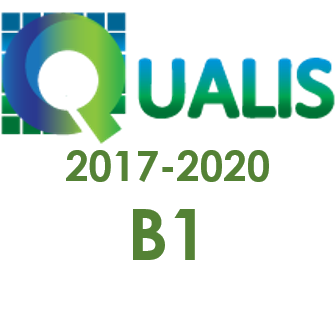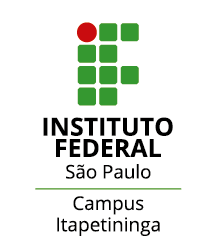Experiencias metacognitivas de estudiantes de la escuela secundaria en el aprendizaje de la Física
Palabras clave:
Metacognición, Experiencias metacognitivas, Escuela secundaria, Aprendizaje en FísicaResumen
En este artículo, traemos los resultados de una investigación que buscó comprender: cómo los estudiantes de la escuela secundaria percibieron y entendieron su aprendizaje en Física; si eran conscientes de lo que sabían o no, de sus facilidades y dificultades en el proceso de aprendizaje; si eran conscientes de las estrategias que utilizaban para aprender y cuándo estas estrategias eran eficaces o no. Los datos, analizados mediante el ATD, se enmarcaron en percepciones de aprendizaje clasificadas en tres tipos: Totalidad, Parcialidad o No-aprendizaje. Emergieron diecisiete categorías para Totalidad, nueve para Parcialidad y doce para No-aprendizaje.
Descargas
Citas
BARDIN, L. Análise de conteúdo. São Paulo: Edições 70, 2011.
BOEKAERTS, M. Self-regulated learning: where we are today. International journal of educational research, Turkey, v. 31, n. 6, p. 445-457, 1999.
BROWN, A. L. Knowing when, where, and how to remember: a problem of metacognition. In: GLASSER, R. (Ed.). Advances in instructional psychology. New Jersey: Lawrence Erlbaum Associates, 1987. p. 77-165. v. 1.
CORNOLDI, C. The impact of metacognitive reflection on cognitive control. In: MAZZONI, G.; NELSON, T. O. (Ed.). Metacognition and cognitive neuropsychology: control and monitoring processes. Mahwah: Lawrence Erlbaum Associates, 1998. p. 139-160.
CORRÊA, N. N. G. Mapeamento da percepção do sistema metacognitivo na aprendizagem em Física: um estudo dos relatos de estudantes do Ensino Médio. 191fls. Thesis (Doctorate in Science Teaching and Mathematics Education) – State University of Londrina, Londrina, 2021.
CORRÊA, N. N. G.; PASSOS, M. M.; ARRUDA, S. M. Metacognição e as relações com o saber. Ciência & Educação, Bauru, v. 24, n. 2, p. 517-534, 2018a.
CORRÊA, N. N. G.; PASSOS, M. M.; ARRUDA, S. M. Perfil metacognitivo (Parte II): aplicação de instrumento de análise. Investigações em Ensino de Ciências, Porto Alegre, v. 23, n. 1, p. 230-244, 2018b.
CORRÊA, N. N. G.; PASSOS, M. M.; ARRUDA, S. M.; ROSA, C. T. W. Entendendo a metacognição e sua influência conativa para a aprendizagem. In: CORRÊA, H. E. R.; FIORUCCI, R.; PAIXÃO, S. V. (Org.). Educação (integral) para o século XXI: cognição, aprendizagens e diversidades. Bauru: Gradus Editora, 2021. p. 119-140.
CORRÊA, N. N. G.; PASSOS, M. M.; CORRÊA, H. E. R.; ARRUDA, S. M. Estudo exploratório sobre o uso da palavra “metacognição” em artigos publicados em periódicos brasileiros do ensino de Ciências e Matemática de 2007 a 2017. Caderno Brasileiro de Ensino de Física, Florianópolis, v. 37, n. 1, p. 6-26, 2020.
DEWEY, J. Como pensamos. Barcelona: Paidos, 1933.
EFKLIDES, A. How does metacognition contribute to the regulation of learning? An integrative approach. Psihologijsketeme, [s. l.], v. 23, p. 1-30, 2014.
EFKLIDES, A. Interactions of metacognition with motivation and affect in self-regulated learning: the MASRL model. Educational psychologist, [s. l.], v. 46, n. 1, p. 6-25, 2011.
EFKLIDES, A. Metacognition and affect: What can metacognitive experiences tell us about the learning process? Educational research review, [s. l.], v. 1, n. 1, p. 3-14, 2006b.
EFKLIDES, A. Metacognition: defining its facets and levels of functioning in relation to self-regulation and co-regulation. European Psychologist, [s. l.], v. 13, n. 4, p. 277-287, 2008.
EFKLIDES, A. Metacognitive experiences in problem solving. In: EFKLIDES, A. Trends and prospects in motivation research. Dordrecht: Springer, 2001. p. 297-323.
EFKLIDES, A. Metacognitive experiences: the missing link in the self-regulated learning process. Educational Psychology Review, [s. l.], v. 18, n. 3, p. 287-291, 2006a.
EFKLIDES, A. The role of metacognitive experiences in the learning process. Psicothema, Asturias, v. 21, n. 1, p. 76-82, 2009.
EFKLIDES, A. The systemic nature of metacognitive experiences. In: EFKLIDES, A. Metacognition. Boston: Springer, 2002. p. 19-34.
FERNANDEZ-DUQUE, D.; BAIRD, J. A.; POSNER, M. I. Executive attention and metacognitive regulation. Consciousness and Cognition, [s. l.], v. 9, n. 2, p. 288-307, 2000.
FLAVELL, J. H. First Discussant’s Comments: what is memory development the development of? Human Development, [s. l.], v. 14, n. 4, 1971. p. 272-278.
FLAVELL, J. H. Metacognition and cognitive monitoring: a new area of cognitive-developmental inquiry. American psychologist, [s. l.], v. 34, n. 10, p. 906, 1979.
FLAVELL, J. H.; WELLMAN, H. M. Metamemory. In: KAIL, R. V.; HAGEN, J. W. (Ed.). Perspectives on the development of memory and cognition. New Jersey: Lawrence Erlbaum Associates, 1977. p. 3-33.
FONSECA, V. Desenvolvimento cognitivo e processo de ensino-aprendizagem: abordagem psicopedagógica à luz de Vygotsky. Petrópolis: Vozes, 2018.
HACKER, D. J.; DUNLOSKY, J.; GRAESSER, A. C. (Ed.). Metacognition in educational theory and practice. Routledge, 1998.
HARTMAN, H. J. Developing students’ metacognitive knowledge and skills. In: HARTMAN, H. J. Metacognition in learning and instruction. Dordrecht: Springer, 2001. p. 33-68.
ILLERIS, K. Uma compreensão abrangente sobre a aprendizagem humana. Teorias contemporâneas da aprendizagem. Porto Alegre: Penso, 2013. p. 15-30.
MORAES, R.; GALIAZZI, M. C. Análise textual discursiva. Ijuí: Unijuí, 2011.
NELSON, T. O.; NARENS, L. Why investigate metacognition. In: METCALFE, J.; SHIMAMURA, A. P. (Ed.). Metacognition: knowing about knowing. Cambridge: MIT Press, 1994. p. 1-26.
NOUSHAD, P. P. Cognitions about cognitions: the theory of metacognition. ERIC Clearinghouse, 2008. p. 1-23.
ROSA, C. T. W. Instrumento para avaliação do uso de estratégias metacognitivas nas atividades experimentais de Física. Revista Thema, [s. l.], v. 14, n. 2, p. 182-193, 2017.
SCHRAW, G. Promoting general metacognitive awareness. Instructional science, [s. l.], v. 26, n. 1-2, p. 113-125, 1998.
SCHRAW, G. Measuring metacognitive judgments. In: Handbook of metacognition in education. Routledge, 2009. p. 427-441.
SCHRAW, G.; DENNISON, R. S. Assessing metacognitive awareness. Contemporary educational psychology, [s. l.], v. 19, n. 4, p. 460-475, 1994.
SCHRAW, G.; MOSHMAN, D. Metacognitive theories. Educational psychology review, [s. l.], v. 7, n. 4, p. 351-371, 1995.
TARRICONE, P. The taxonomy of metacognition. New York: Psychology Press, 2011.
Descargas
Publicado
Cómo citar
Número
Sección
Licencia
Derechos de autor 2023 Revista Internacional de Pesquisa em Didática das Ciências e Matemática

Esta obra está bajo una licencia internacional Creative Commons Atribución-NoComercial-CompartirIgual 4.0.




